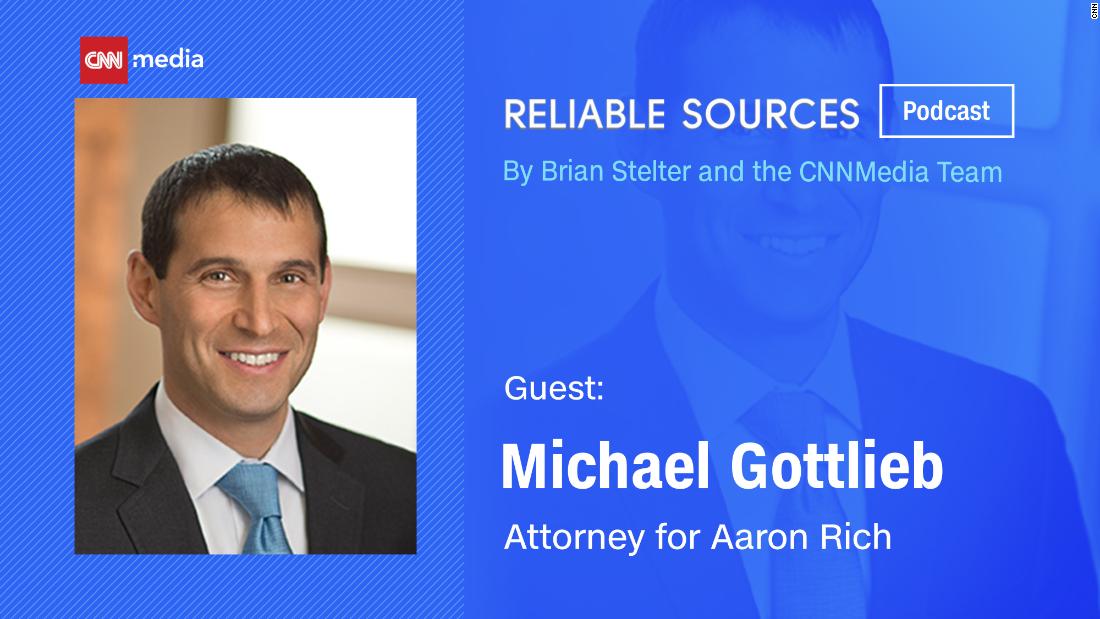
The Washington Times issued a retraction on Monday that was part of a court settlement Aaron Rich reached with the publication, following a lawsuit he filed against them in March. He decided to take legal action against them -- as well as other conservative outlets and figures -- after it ran a column that said he and his brother Seth Rich leaked DNC emails to Wikileaks, resulting in the vengeful murder of Seth. The article did not cite any evidence to support the assertion.
"This lawsuit and these types of lawsuits are not designed to stop people from expressing their viewpoints, their political viewpoints, their opinions," Aaron Rich's attorney Michael Gottlieb told CNN's Brian Stelter in this week's Reliable Sources podcast. "What they are designed to do is to stop people from dragging innocent individuals like Aaron through the mud...making factual assertions about them that have no basis in fact and are false."
Listen to the whole podcast here:
Gottlieb said for certain cases involving fake news and conspiracy theories on the internet, the courts can be a "powerful tool." But there are many caveats to this strategy.
"There are numerous problems with using the courts to try to fight back against these conspiracy theories," Gottlieb said. The process is time-consuming, and "ordinary people" who find themselves in the center of a conspiracy theory often don't have the funds to pursue lawsuits that could last years.
It's a slow process, he said, and by the time a case makes it to a trial and jury, people may not remember the conspiracy theory.
"There are many ways in which this is a highly imperfect mechanism, but it really is the only mechanism for finding an independent arbiter of the factual content of the conspiracy theory to make a determination of whether it was true or false," he said. "And if it was either knowingly or recklessly false, giving the people who have brought that suit an opportunity for some form of justice."
The Washington Times retraction not only appeared on the website, but on social media platforms as well. In the retraction, they also state that the original column, as well as all online content that referenced the column have "been deleted to the extent within The Washington Times' control."
When asked whether this settlement could lead to conspiracy theories finally being put to rest, Gottlieb had doubts, but was hopeful that it could convince some people who believed The Washington Times article that their assumptions about Aaron were false.
"I recognize there are some people who will never be satisfied and never be convinced, but I think the goal is to try to reach most people who are willing to look at evidence and willing to consider the facts different from those that they have believed," Gottlieb said.
No comments:
Post a Comment